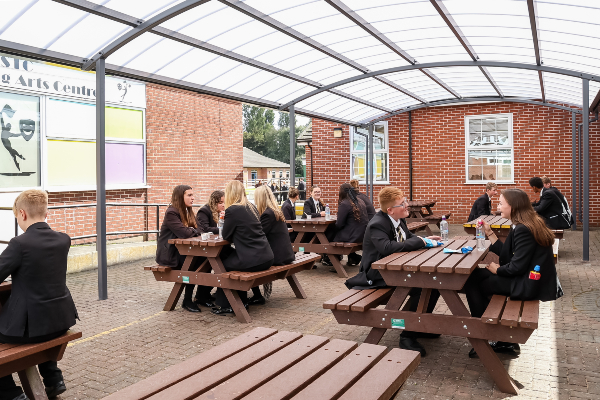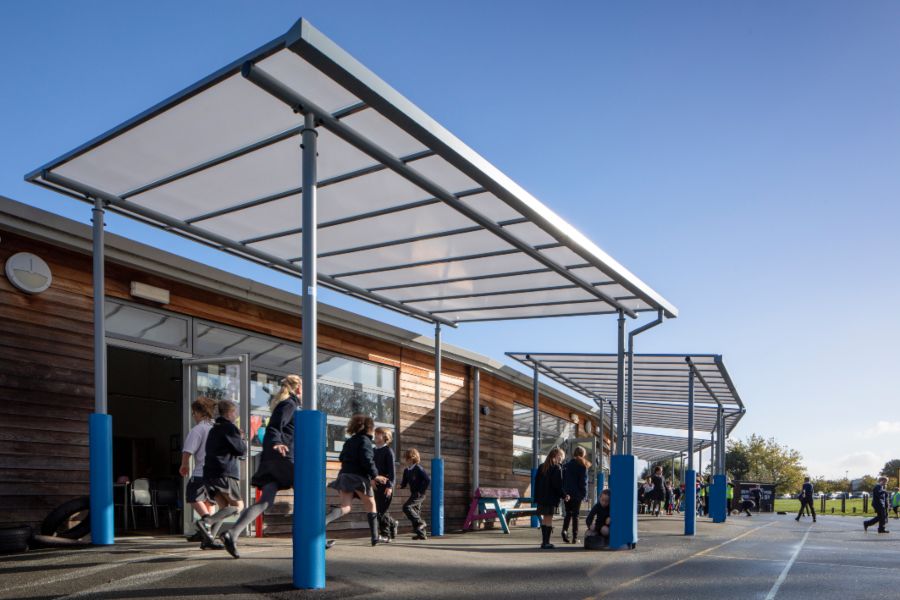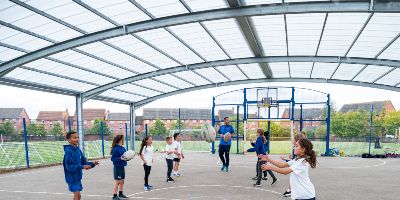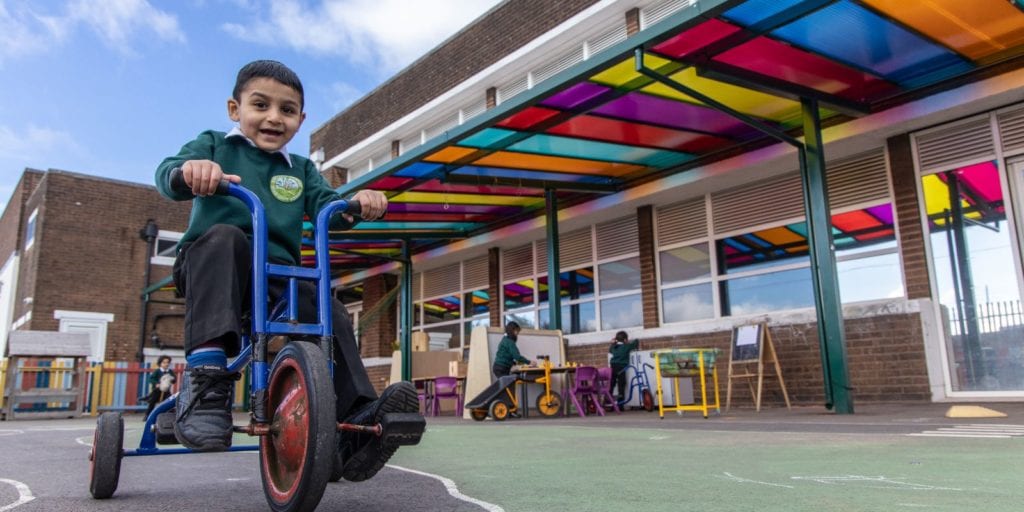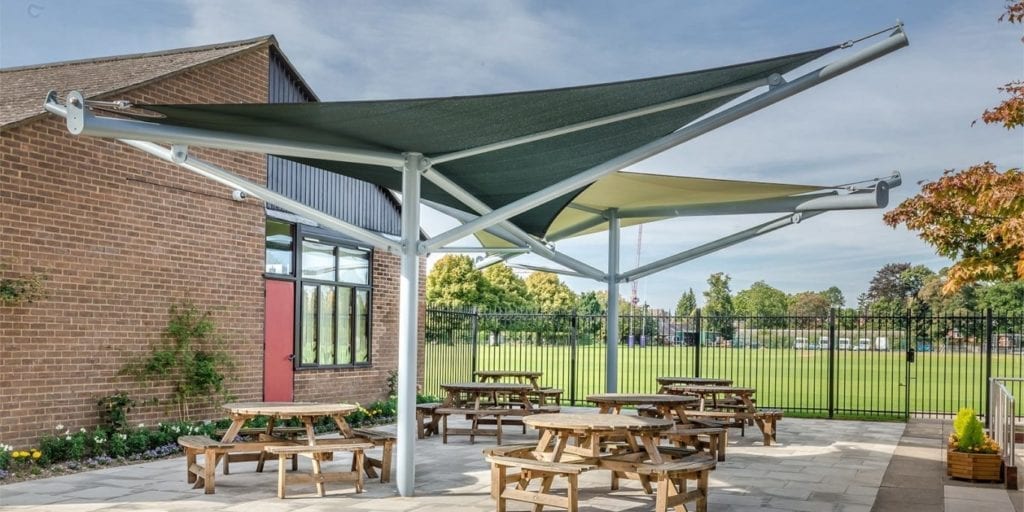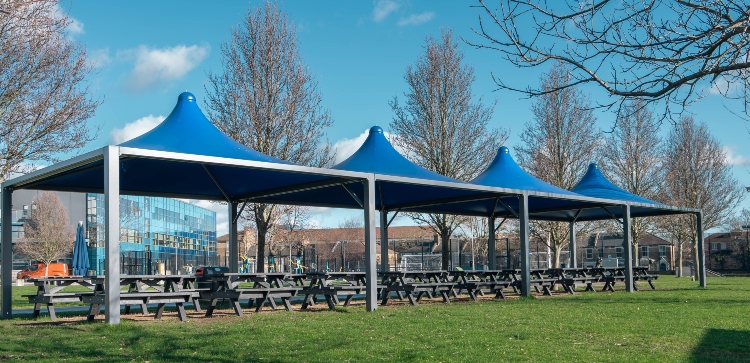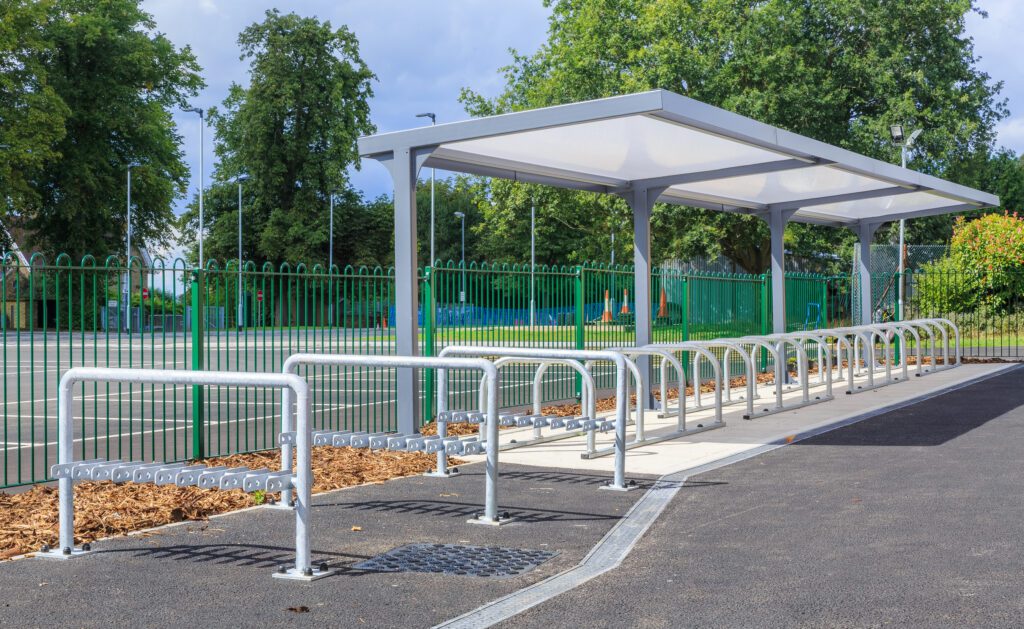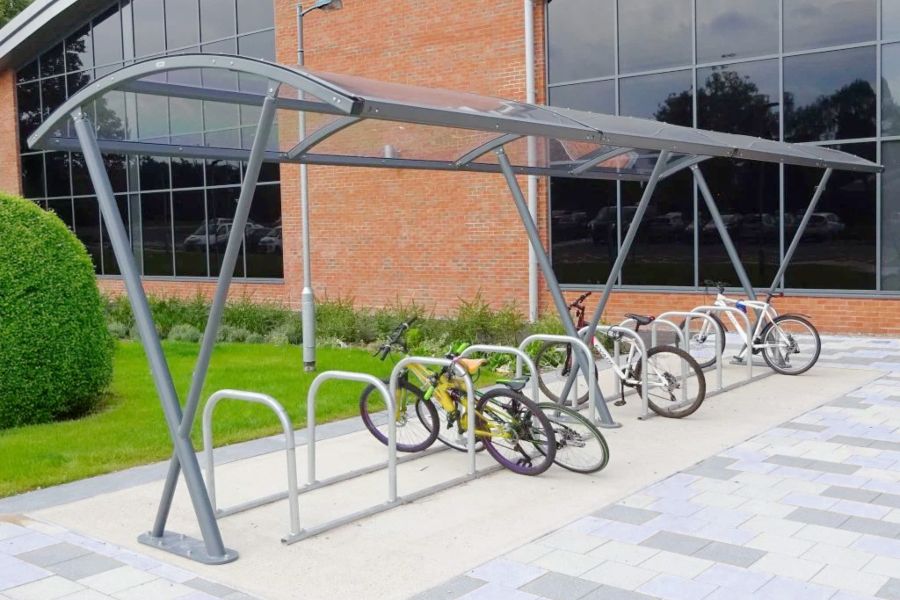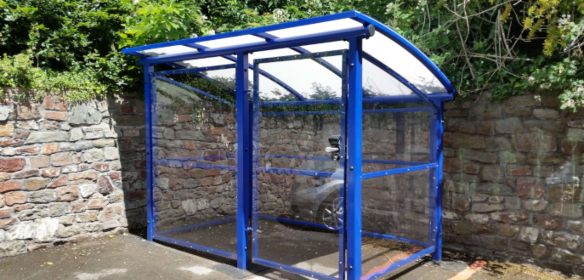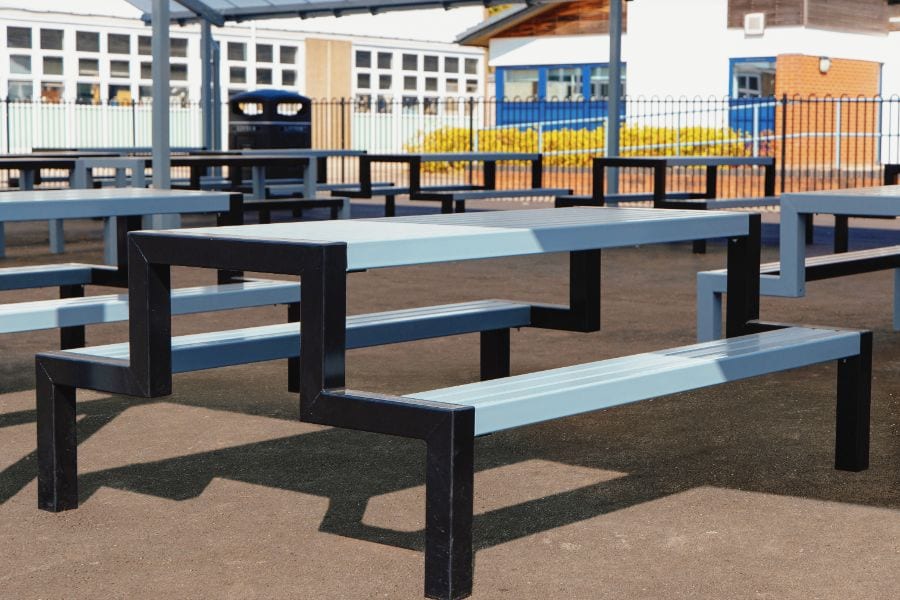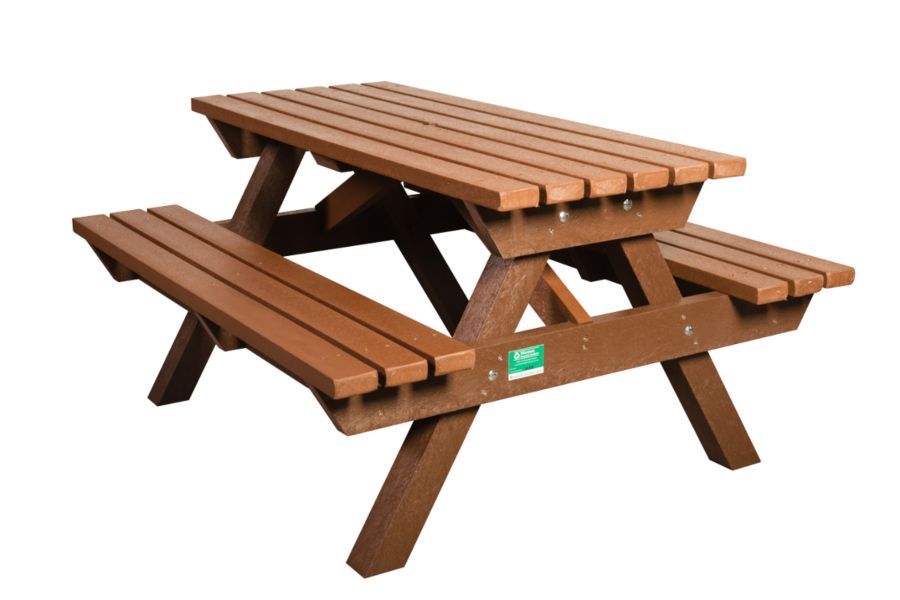
The Hedley Foundation
The Hedley Foundation reviews grant applications four times a year, so there are plenty of oppportunites to have your project considered for funding.
Read MoreWhile your school finances will feel as tight as ever there are hundreds of organisations and grant-awarding bodies that you can apply to for funding for those projects you’ve been planning. A wide range of funding types are available to support all sorts of expenditure from training to playground canopies, curriculum-based activities to sports projects, school visits or arranging, extra-curricular activities through to building and outdoor improvements to your educational spaces.
There are many grant providers which award funds to schools, but it can be hard to find the right scheme and write a successful application. This page contains a range of free resources to assist you in securing funds for your school. Including an extensive list of grant providers and a free ‘Writing Successful Grant Applications’ guide.
A&S Landscape are not affiliated with the grant providers, so if you need more detailed information you are best to contact them directly.
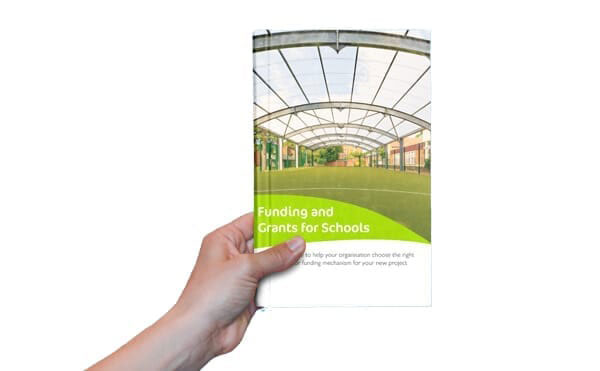
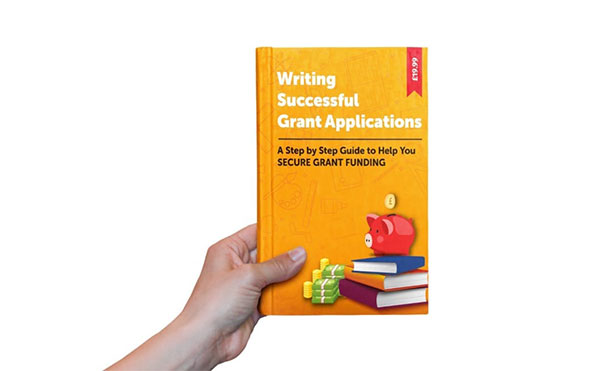
The Hedley Foundation reviews grant applications four times a year, so there are plenty of oppportunites to have your project considered for funding.
Read MoreUp to £15,000 is available for schools who apply to the Engineering Education Grant Scheme - get your applications in now.
Read MoreDon't miss the March deadline to apply for up to £7,000 from the Daiwa Foundation.
Read More£64,000 is given away by Persimmon each month to fund local good causes in the UK.
Read MoreState schools in the UK can apply to Classics for All for support in introducing classic subjects.
Read MoreApply to the SHINE Trust to fund projects which focus on the education of disadvantaged children in the North of England
Read MoreThis scheme was set up to help 'transform young lives through sport and education' and funds a range of projects in the UK.
Read MoreThe Edge Innovation Fund awards grants for projects which are disruptive, innovative and challenge the education system approach.
Read MoreGrants are available for schools and colleges to connect pupils with the South Downs National Park through real-world experiences and curriculum-linked activities.
Read MoreUp to £3,000 is available to schools who are running STEM projects. With an extended deadline for applications, now is the perfect time to apply for funding.
Read MoreSchools can apply for funding to run events, projects and trips related to classical subjects.
Read MoreUp to £1,200 in funding is available to schools to run marine conservation-related activities, apply by the end of September.
Read MoreApply for up to £500 from The Hellenic Society to fund Greek-related projects in your school.
Read MoreSchools can apply for up to £2,500 to fund recreational holidays for disadvantaged and disabled pupils.
Read MoreThis fund supports schools with service children across the UK.
Read MoreThis scheme aims to ensure that music is accessible to thousands of children across the UK.
Read MoreSpark an interest in Maths with your students and apply for a grant from the London Mathematical Socitey.
Read MoreRaise awareness and engagement with Pathology at your school and apply for a grant of up to £1,000.
Read MoreUp to £90,000 is available to support young UK carers through innovative educational programs.
Read MoreThis scheme supports schools in teaching Roman and Latin studies by funding textbooks and lectures.
Read MoreGrants of up to £6,000 are available to help schools to teach Christianity. Easily apply today.
Read MoreApply for up to £2,000 from DPD to fund an environmentally-friendly project at your school.
Read MoreThis new scheme is open for applications to give UK students the opportunity to live and study abroad for a year.
Read MoreUp to £1,000 will be awarded by the Royal Geographical Society to teachers planning an innovative teaching project.
Read MoreSchools can apply for funding to run projects which bring communities together through good food.
Read MoreGrants of up to £1,500 are available for schools to support tree and hedge planting projects.
Read MoreApply for a fully-funded show from the Royal Institution for your state-funded primary or secondary school.
Read MoreFunding is open for organisations which support people with learning disabilities through research and/or care.
Read MoreGrants are awarded for capital projects such as new builds, refurbishments, or technical equipment at secondary schools and colleges.
Read MoreApply for funding to provide your pupils with a healthy breakfast at the beginning of the school day.
Read MoreFunding of up to £75,000 for projects that help pupils develop their employability skills and ability to live independently after education.
Read MoreFunding is available for the installation of energy-efficient technologies that will help to improve learning environments.
Read MoreInnovative projects covering any field of Geography can receive up to £1,000 in funding from this grant.
Read MorePrimary schools can apply for up to £150,000 to fund art-based learning projects.
Read MoreSchools can get funded support to set up G Suite for Education or Office 365 Education platforms.
Read MoreFunds of up to £15,000 are awarded to projects which cover topics including nuclear physics, accelerator science and astronomy.
Read MoreSchools and colleges can apply for a grant for events which promote physics and engineering in young people.
Read MoreSchools can apply for funding to support projects surrounding horticulture, plant sciences, art and art history.
Read MoreSpecial schools can apply for specialist tennis equipment and wheelchairs to enable disabled people to play the sport.
Read MoreThe British Ecological Society has announced it will be awarding up to £2000 in its recently opened outreach grants programme.
Read MoreSchools can apply for funding to run a engaging maths related activity. Grants of up to £600 are available.
Read MoreSchools and registered UK charities can get a funding boost to encourage young people to study science at school and pursue STEM-related further education.
Read MorePrimary and secondary schools can receive funding to purchase equipment to enrich science and chemistry lessons.
Read MoreNot-for-profit organisations and schools can apply for funding for projects which educate young people and local communities on the environment and countryside.
Read MoreFunding is available for pupils aged 11 to 19, to travel to a partner school somewhere in the world. This gives students the opportunity of a lifetime for an international school visit.
Read MoreSchools, community groups and other charities can apply for a grant to purchase musical instruments, related equipment and to cover teaching costs.
Read MoreThis grant is available for schools, youth groups, STEM organisations and members of the IET who are running projects to improve the understanding of engineering.
Read MoreSchools, not-for-profit organisations and community groups can apply for a grant for educational, artistic, cultural and sporting projects.
Read MoreSmall grants are available to individuals and organisations in the UK which help children access and enjoy creative and artistic activities.
Read MoreSchools and voluntary youth groups can apply for funding to help disadvantaged young people attend a course to better understand and experience the outdoors.
Read MoreUK schools can apply for a small grant to fund projects which raise the awareness and education of Japan and its culture.
Read MoreNot-for-profit organisations can apply for grants up to £1,000 to fund good causes. The projects should benefit the local community and help to improve lives.
Read MoreTeachers, schools and individuals in full-time education could receive funding to buy musical instruments, equipment and training opportunities.
Read MoreBreakfast clubs held in UK schools can apply for a fund of up to £1,000. This scheme aims to help those with the greatest need.
Read MoreAny not-for-profit organisation working in schools can apply for a fund to improve outcomes for pupils with special educational needs or disabilities.
Read MoreSchools can receive funding to purchase reading books, e-readers, library software and other IT equipment. This is in the aim of creating new or developing existing library provisions.
Read MoreFunding is available to help infant, primary and secondary schools to develop or create a nature area. Grants are worth £500 and successful applicants will also get a two-hour training session.
Read MoreAny not-for-profit organisation with a charitable purpose can apply one of these small grants. The projects need to have a positive impact on families in local areas.
Read MoreFunding is available for projects which fix, repair and improve community facilities for those in need. Not-for-profit organisations and local registered charities can apply for up to £5,000.
Read MoreThis new capital grants scheme helps to improve tennis facilities in local areas. Clubs, schools and colleges, universities and local authorities can all apply.
Read MoreFunds are available for projects which promote the protection, preservation and improvement of the environment. This open to state schools, UK registered charities and any other not-for-profit organisation.
Read MoreThis special one-off scheme will help to fund capital projects across the UK which benefit communities. This includes playground equipment, multi-use games areas and new buildings.
Read MoreUK charitable organisations can apply for funding on projects which make a difference to communities. There are no restrictions on project types and funds of up to £25,000 are available.
Read MoreSpecial needs schools and UK charities can apply for funding for projects which supports young people with special needs, disadvantaged young people or people with cancer.
Read MoreThis private family fund aims to improve the lives of local people and communities, in North Tyneside, South Northumberland and East Newcastle.
Read MoreGrants are available for projects which improve the lives of those in need, particularly those with physical or mental disabilities or the aged. Registered charities are eligible to apply.
Read MoreDonations collected at Moto service stations are used to fund projects at local community partners, community schools and chosen charities.
Read MoreRegistered charities can receive funding for projects which have a clear benefit for communities through education, welfare, youth schemes or support for the elderly.
Read MoreOver £1 million has been donated to local, small charities and community groups. The projects must benefit young people, vulnerable groups, small neighbourhood groups and communities.
Read MoreGrants are available to improve spaces near SUEZ recycling sites. The project should improve public amenities, maintain historic sites or conserve the biodiversity of an area.
Read MoreRegistered charities can receive funds for community-based projects which relieve the effects of poverty. Funding is available from £250 to £1,000 and must be used for capital expenditure.
Read MoreFour main grant schemes are available to any not-for-profit organisation. Projects should improve the physical environment in ways which will also benefit people’s lives.
Read MoreGrants are offered to projects, trips, activities and equipment which benefits local communities. Any not-for-profit organisation who supports people in need can apply.
Read MoreThis Trust aims to improve communities, by supporting children and the environment. Small grants are available four times a year, the larger funds are available twice a year.
Read MoreRegistered charities can apply for funding for a project which falls into one or more of the focus areas of health, lifelong learning, community development and social care.
Read MoreThe foundation aims to support areas and projects which are in need. The activities should have clear benefits, outcomes and strong leadership.
Read MoreUK registered charities can apply for a grant to improve the lives of children with special needs, or those with life-threatening illnesses.
Read MoreRegistered charities can apply for funding if they improve the education and or health of young people. Grants of up to £30,000 per year are available.
Read MoreThis foundation provides funding to charities with under £15 million annual income. Grants are given to one-off projects, such as building work, new equipment or the purchase of a vehicle.
Read MoreGrants are given to youth clubs which give young people the chance to improve their social skills, team spirit and self-esteem. The average funding amount is between £250 and £600.
Read MoreBedfordshire based organisations can apply for funding which benefits the local community. The typical funding range is between £1,000 and £10,000.
Read MoreGrants are available for charitable projects which have a positive impact on children’s lives. To apply the organisation must relate to the sport of rugby, be of a charitable nature and work with young people.
Read MoreFunding can be given to projects which address a community issue and provide benefits to the local area. Eligible groups include self-help or voluntary groups and charities, amongst others.
Read MoreOrganisations, including schools, can request unsellable or re-usable materials from B&Q, to benefit the local community and environment.
Read MoreTesco funds thousands of community projects across the UK. To receive funding, the project must promote community participation in the improvement and use of outdoor spaces.
Read MoreThis foundation supports organisations which improve people’s lives and communities. Charities, not-for-profit organisations and local good causes can all apply.
Read MoreThis funding aims to help and make a difference in the lives of young people who are disadvantaged. Grants are available up to and including £10,000 for one year only.
Read MoreProjects which work directly with children to improve their social and physical environments can apply for a main grant. The funding is aimed at activities over £10,000 per year.
Read MoreCharitable organisations who help those in Berkshire, Gloucestershire, Hampshire and Oxfordshire can apply for funding.
Read MoreFunding is available for capital projects run by organisations who aim to increase participation in sports. There are two grants available, the Small Capital and Major Capital schemes.
Read MoreSmall grants and practical assistance are given to community gardens and green sites in London. Up to £1,500 is available for these public space projects.
Read MoreThis scheme aims to improve young people’s life chances through education. A wide range of projects is supported, allowing young people to participate in a variety of activities.
Read MoreUnderfunded, grassroots charities are funded by this scheme. This allows the disabled or disadvantaged to feel more involved and active within society.
Read MoreThis privately funded Trust supports communities and organisations in Yorkshire. Registered charities, education or health organisations and hospitals can apply for the grants.
Read MoreProjects in East and West Sussex, Surrey and Kent can be awarded grants. The scheme aims to support the environment, conservation works and much more.
Read MoreThis capital fund improves local community areas, helping people to get more active. Grants of up to £150,000 are awarded to schools, sports clubs, community groups and local authorities.
Read MoreGrants are available for community improvement projects based near to and affected by the operations of Heathrow airport. This scheme is aimed at improving how communities work together.
Read MoreThis scheme aims to improve the lives of young people aged 13 to 24, by offering improved skill and development activities. The funding range is between £2,500 and £25,000.
Read MoreFunds are awarded to activities which improve the use of local woodlands for a range of environmental, sustainability and health benefits.
Read MoreNot-for-profit and community groups based in Northumberland can apply for this grant. Funded projects must add value to the area, priority is given to sustainable, long-term plans.
Read MoreFunding from this scheme should support a wide range of activities, including village hall improvements, sporting facilities and extra-curricular activities.
Read MoreThe foundation supports young people and disabled people to participate in rowing activities. Funding is available between £500 and £3,000.
Read MoreClubs, limited companies and registered charities associated with hockey can apply for this fund. Grants are usually awarded between £10,000 and £75,000.
Read MoreThis scheme is aimed at supporting football clubs and increasing the number of people who participate. Suitable projects include goalpost replacement, fencing and pitch improvements.
Read MoreNot-for-profit organisations which benefit people who participate and play sport are supported by this scheme. Up to £10,000 may be awarded to a successful applicant.
Read MoreThis programme supports community facilities, and there are two funding ranges available for smaller and larger projects.
Read MoreGrants are awarded to the development of new and refurbished football facilities. There are three main steps in completing the application, and the funding is available from £10,000 to £500,000.
Read MoreThis scheme is set up to improve the lives of people and communities in need. The project must improve people’s lives, build stronger communities and promote an active lifestyle.
Read MoreUp to £5,000 is available for projects which support community activities, increase skill and creativity and improve people’s quality of life. Schools amongst other organisations are welcomed to apply.
Read MoreGrants are given to improve the lives of local people and their community. Schools, statutory bodies and voluntary groups can apply for the funds of up to £10,000.
Read MoreThis grant aims to create more integrated communities, improve the local environment and the health of people.
Read MoreFunds of up to £10,000 are available for projects which help to build strong communities, improve local areas and create more opportunities.
Read MoreGrants are available for educational projects which address key global concerns, including climate change, renewable energy and social justice.
Read MoreVolunteering Matters develops and delivers volunteer-led projects. Their schemes help to build strong communities and improve health and wellbeing.
Read MoreThis Trust provides funds to disadvantaged young people, to help them develop their interest in adventurous activities.
Read MoreThis scheme funds a wide range of projects, from new pitches to new kit. The programme aims to improve local football facilities and grow participation in the game.
Read MoreFunding is awarded to projects which create opportunities for young people to take part in sport. The organisation believes in the continued expansion of vital facilities and equipment.
Read MoreThis charity works with local communities to fund large scale literacy projects and local schools to provide books and other literacy resources.
Read MoreFunding is awarded to local community causes, including sports teams, hospices or charities. So far over £860,000 has been donated.
Read MoreFunding is available to help projects which nurture ability and talents and enhance educational opportunities in the UK.
Read MoreSchools are operating in an increasingly tough financial environment. They are expected to deliver high-quality educational provision in a safe, healthy environment with tightening budgets. This, in turn, means that additional funding is becoming more and more important. Grant funding is one way to obtain supplementary funding but sometimes the process can seem confusing. So, who provides grants and where do you start?
There are many organisations in the UK which offer grants to schools. Each will have their own aims, criteria, objectives and guidelines which will explain the kinds of projects that they will fund.
This guide aims to clarify the process of selecting and applying for grants to make sure that eligible schools have the best chance of success. The process can seem daunting, so we have broken it down into simple sections.

A grant is an amount of money that is awarded for a specific purpose. You are not required to pay a grant back but you are likely to be required to evidence how it has been spent and confirm that it has delivered what you specified when you applied for it.
Grants are available from the government, charities, trusts, foundations and other organisations such as The National Lottery.
The criteria for each grant will be different, some will be specific to education, sports or community initiatives and the amounts will vary. There is often a requirement for you to match the funding that is offered by the grant; so if you can spend £10,000 for example, then they will offer a grant of £10,000.
Example
The Institute of Mathematics has announced that individuals working in secondary schools, Colleges of Further Education (FE) and Higher Education Institutes (HEls) can apply for a grant to help with the costs of running or attending an educational activity relating to mathematics. A budget of £6,000 has been earmarked for this scheme and will be split equally between Schools/Further Education and Higher Education. Grants will be made up to a value of £600.
Grants enable you to undertake projects that you otherwise could not afford.
You could use the grant to purchase items, services or resources. These might include:
 Pros
Pros
 Cons
Cons
Tip:
If you can’t find a grant to suit your project, look for a project that suits a grant! You may already have allocated budget for something for which grant funding is available, can you claim this and redirect the allocated budget to your initial idea?

Enlisting specialist help for identifying, managing and applying for funding isn’t normally free but the cost of doing so isn’t prohibitive and could be money well invested.
Providers like FundEd offer timesaving toolkits and databases with available funding listed by curriculum or interest area. Subscription service funding directories can also be useful as they act as centralised information resources which allow you to search for relevant grants and funding sources. Grants4Schools, for instance, provides a regularly updated directory of grants from a variety of sources. Our monthly Funding and Grants for Schools guide is a great starting point and covers a wide range of grant-awarding bodies.
If you give consideration to the following, it will help you to work out if a specific grant is likely to support your project.
Check criteria and ascertain suitability.
Pick up the phone and talk to them – ask for honest feedback before you apply.
If you need to amend your project to suit their grant, choose another grant provider.
Example
The Tesco Bags of Help Grant website covers all of the key grant information including how does it work, who is eligible to apply, what type of projects will be funded, matched funding requirements and how to submit an application. If you still have questions, talk to the grant providers. Their role is to find and fund suitable applicants, so they are usually very helpful!

Designate a responsible person who has the time and resources to deliver the grant application. This person may be required to do research, collate input from other team members, obtain quotes, write the application and adhere to strict application timelines. Do they have the capacity to do this effectively?
As a team, you will need to be clear on the objectives and scope of your project, before you will be able to communicate this to the grant provider. Consider the project as a story, make the reason for you doing it come to life and show the difference that it will make to the real lives of pupils, teachers and parents.
Set out your strategy by clarifying the Objective, Output and Outcome.
Use clear, concise language and ensure that financial information is detailed and robust.
Objective
The issue or problem that you want your project to overcome
Why This Is Important, What Is The Need?
Use relevant research to show the need; collate statistics, facts and quotes, e.g.
Tip:
Many grant providers like to see as many beneficiaries as possible, consider for example if your project may also be able to be used at weekends by a local community group. This means the provider is seen as helping two groups.
Output
What the money will be spent on
Outcome
The result, impact or benefits of the project (specific, measurable, realistic)
The difference this project will make, for example:
Show evidence of similar projects and the impact they have had.
Provide case studies of similar initiatives.
Think through the reasons for your project as this will give you a lot of the information that you may need to include in your application. This is a very useful step –
What does the end result look like?
Define the project –
Why are you doing it?
Identify the need –
Who will be involved in delivering it?
Identify the people –
When are you planning to deliver it?
Define the process –
Tip:
Remember that part of an application will often ask you to confirm that the project is ready to go ahead – make sure you have all the necessary permissions in place. For example, a funder can’t award money that you don’t spend if you fail to obtain planning permission.
Where will you complete the project?
Clarify location and reach –
How will you complete the project?
Outline how work will be completed.
Outline the process –

Checklist
Grant providers report that unsuccessful grants are those which lack clarity and include claims which are unsubstantiated. The sections above will help you to communicate clearly the reasons for and desired outcomes of your project. Make sure that you provide evidence for any claims or statistics that you include – these might be government statistics, local council reports or market research.
Once your application has been submitted, everyone will be keen to receive a decision. You can ease this waiting period by letting your team know when this is likely to happen and how you will be informed.
Celebrate and congratulate those who helped you with the application process! Now you can start planning and begin your journey, well done, it was all worth it!
Try and get some feedback from the grant provider as to why your application was rejected. This will help you with future applications and it might be that they suggest a small amendment and ask you to resubmit it. Whatever they say, try to remain positive. There will be a suitable grant for you and each application is a step on a learning journey.
Collating all the information above is the difficult part, writing each application will be simpler once this ‘thinking’ step has been done.
Schools want to provide the best experience possible for their students. Whether this is new classroom equipment, a playground shelter or more extracurricular activities. This isn’t easy within the constraints of government funding. Because of this, fundraising has become a cornerstone for income generation in schools up and down the country. As more and more parents become strapped for cash in difficult times, asking for money can feel like a thankless task.
But your fundraising drive doesn’t just bring urgently needed funds into the school’s coffers, it can also bring the local community together. In these challenging times, people are starting to come together like never before. Now is a great time to get creative with your fundraising ideas and start to plan ahead for the better days to come.
What better way to entice people to give up their spare change than some delicious sweet treats? It’s a tried and tested fundraising method, but there’s really no way to go wrong with a classic bake sale. They are easy to plan and set up, all you need is use of your school hall or outside canopy and enough tables to let budding bakers of all ages sell their homemade cakes and sweets. Get the word out and set a fair price for the treats.

There are one of two ways you could do this. The first is to hold a school-wide fancy dress day, akin to World Book Day. After all, there is nothing kids love more than getting out of their school uniform for a day and seeing their teachers in silly outfits would be the cherry on top! Charging a pound or two is a simple way to earn a fair amount, depending on the size of your school.
Or alternatively, if you’re a parent, you could take on the challenge by yourself and gather sponsors for a solo fancy dress day. Think about going to the office in your best pirate outfit or heading out to work dressed as Elsa for the day.
Ready, Steady, Cook! has recently made a triumphant return to our TVs, and everyone’s always interested in finding new recipes, so why not host a potluck dinner for staff, parents, and even kids to contribute to? Again, all that’s needed is willing participants and access to a hall where you can host the dinner. Ask everyone to bring a unique dish, and charge admission on the door. This method is much cheaper than hosting a formal fundraising dinner and can have the added benefit of getting the kids interested in cooking!
Everyone has a unique talent and hosting this kind of fundraising event can give kids and parents alike a golden opportunity to show them off. Whether singing, dancing, telling jokes or juggling, it’s a great way to bring the community together and share an experience that’s fun for everyone. Add extra excitement by giving out prizes for titles such as ‘Best Singer’, ‘Funniest Entry’, or ‘Most Unique Talent’.
For the last few years, stars of the BBC have taken to the dancefloor for a 24-hour danceathon to raise money for Children in Need. Though we wouldn’t recommend doing a full 24-hour extravaganza, you could take donations for a dance party lasting for the duration of the school day. You could get staff and students involved at intervals, without interrupting a full day of learning. This is a fundraising idea that’s bound to keep you on your toes!
Keeping with the active theme, why not try a sponsored swim? Take a dip in the local lake, venture out into the sea, or enlist the help of your local pool to put on a sponsored swim. Depending on your swimming strength, you could take donations for the number of lengths you do in the pool or how long you can brave the chilly sea temperatures. If you’re not a regular swimmer, make sure you practice and take adequate measures to stay safe before you consider this one, however!
What’s better than a party to raise some money?
School doesn’t have to be all work and no play, provide the kids with their favourite music and some refreshments and let them have a blast in the school hall. A classic disco is bound to work well for primary aged kids, but if you fancy putting on something more formal or fancy consider hosting a ball. Charging an admission fee is the best way to fundraise here, and parents will be more than happy to give up the money if it means getting a night to themselves!
Hosting a film festival at school is a way to raise some extra cash that requires only the most minimal of planning. Again, there are two main ways to do this – one that’s fairly straightforward and one that involves getting families to get their creative juices flowing.
If you have a projector or large screen, make use of the school hall and turn it into a simple community cinema. Provide snacks, a few drinks, and some classic family entertainment for an easy way to raise funds that’s fun for everyone.
Or alternatively, ask anyone who’s interested to make a short film to submit to the festival. You can then screen this to the paying attendees and have prizes for the most thought-provoking video or most creative idea. You might even discover the next Steven Spielberg along the way!
Every household in the country is likely to have books around the house that they no longer need. Holding a book sale can encourage families to have a spring clean, bringing in books they’ve already read, no longer want, or just never got around to reading to put on sale. It’s also a great way for everyone to find their new favourite read, so it’s raising money for the school in a way that can still be educational for everyone.

There are several affiliate programs online, that allow you to get donations from people doing their online shopping. Amazon offers one of the most robust and popular programs out there.
When you sign up, you’ll be given an affiliate link. When people use that link to access Amazon and make purchases, you’ll be given a percentage of the profits. It’s incredibly easy and a good way to make cash for the school.
Lots of schools will do non-uniform days, or themed dress-up days. You can do a different kind of dress-up day by asking students and teachers to come in in their pyjamas, paying a donation to do so.
This will be a hit with everyone. If your school has a uniform, students will love not having to wear them. Pyjamas are a great choice as they’re so comfortable, and they still work well with the everyday activities you get up to at your school. Plus, it allows for great photos as you’ll have everyone dressed in fun and colourful pyjamas for the day.
There are lots of ways you can generate money, by selling school merchandise. If you want you can keep it small, offering supplies such as pens, pencils and notebooks.
Want to think bigger? You can sell things like bags, hoodies, lunch boxes, and so much more. Think about what your students and their families may want and brand these items with your school logos. Students who are leaving the school, in particular, will like picking up these items.
Who doesn’t love a good treasure hunt? Stage a hunt that your students can get involved in, asking them to pay a fee to enter. They’ll get into teams and be given a list of items they need to find in the school. The best thing is you can get creative with this. Ask them to decipher riddles to find items or give them a map to guide them on their way. You can even ask them to find the best item for a task, i.e. find a tool that will help you draw a map or fight off pirates.
The fastest group to find the treasure wins, and you can give extra prizes if you wish. For example, you can give prizes to those who find the most creative items.

What students don’t love putting on a play? Pick a play that they will enjoy and practice it after school. Then, you can put on a full theatre performance, charging for the tickets. More and more schools are adding outside amphitheatres to their facilities, allowing the pupils to perform outside. Our range of canopies and shade sails will help you to easily create a covered area outdoors. If you want to go the whole way, you can add in drinks and refreshments too, to raise more money.
Got any budding singers at your school? Organise a karaoke competition for them to show off their skills. It’s easier than ever to host your own karaoke night. All you need is a laptop, an extra screen and some microphones. You can pull up karaoke videos on YouTube so everyone can have a go, no matter what they want to sing. Have judges on hand to give a prize to the best singer and performance at the end of the event.
There’s something at your school that needs to be named. For example, is there a bench on the grounds that isn’t dedicated? Perhaps you have a plain brick wall that can have names added to each brick. Whatever it is, auction off the naming rights. People will love being able to be included in the school in some small way.
Here’s another activity that’s exciting and fun, as well as educational. Hold a Scrabble event one evening in your school hall. It’s easy to set up tables and scrabble boards, ready for students to get involved. Entrants will pay a fee to participate and compete to see who gets the highest score possible. They can also pay an extra donation if they want to sneak a peek at a dictionary.
It’s likely that you have students from all over the world in your school, as well as in your local community. You can hold a fair to show off all these cultures and educate everyone about them. This can include anything you like, from music, to food, to local crafts.
You can ask local businesses to get involved or have parents come in to demonstrate different activities from their home countries. It’ll be a lot of fun and you’ll all learn something too.

Abseiling is one of the most common extreme sports, and it’s one that most people like to use when raising money. It’s extreme enough that you’ll find it easy to get sponsors, but it’s accessible enough that most people will be able to do it. It’s also a great option if you’re able to organise the abseiling event down the school building itself.
If the holidays are coming up, this is a great way to start making some money. You can either buy some Christmas cards wholesale to sell to raise funds, or you can have the students design their own cards to sell. The latter option is very popular, as who wouldn’t enjoy spending time creating fun Christmas cards?
You could certainly do this for other events too, such as Easter or other holidays that your school celebrates. It’s easy to do, and you can raise quite a bit of money this way.
In this age of environmental awareness, this is a great way to raise money and awareness of our effect on the planet. If you have ever seen a swear jar before, then you’ll see that this is the same concept. If anyone in the school does anything that’s environmentally unfriendly, then you can require them to make a donation by paying an ‘eco fine’.
You’ll set a ‘fine’ amount, which needs to be donated every time someone does something wrong. You’ll also need to agree on a list of things to be considered less than environmentally friendly. For example, leaving lights on when you exit a room or using fresh paper for rough drafts are all examples of acts that should be fined.
This takes up some time and does take some organisation but is well worth it. Choose a supermarket local to your school and ask if your students can come in and pack for customers as they get their shopping. It’s best to do this on a busy day, so they can get the most donations possible.
By doing this in your local community, you’re both raising money and raising awareness of what you’re raising money for. You’ll find you’ll get a lot of donations if you simply place a bucket at every checkout where you’re packing for customers.
There are so many children, and adults, that love video games, that this is sure to be a hit. Host a video game tournament in your school and charge each entrant to participate. Create a tournament and have the entrants compete until one is crowned the winner.
Depending on your school and the age of your students, you’ll need to find a game that’s age-appropriate. In many cases, games such as Mario Kart are friendly for even young kids and offer enough excitement to make the competition fun. Don’t forget to have a prize ready for the winner.
Kids love to get involved. Creating a school cookbook is a really fun way to inspire children and their families. This interactive option can involve inviting parents to submit their favourite recipes, along with photos of them cooking with their children. Not only is this a creative way to raise funds, but it also provides learning opportunities for the children too. With a focus on health and fitness in today’s curriculum, this provides schools with a chance to link learning outcomes to income generation. What could be better than an opportunity to be creative, get children and parents involved, inspire learning and generate funds in the process?
A quick Google search will bring up a range of school cookbook providers.
If you were to survey parents at the school gates, you’re sure to find a lot that play the National Lottery. Setting up your own school lottery gives you a chance to involve those parents who like a little flutter, as well as to people in the wider community who would make a small, but regular, stake in return for the chance of winning a prize.
The organisation Your School Lottery has been set up specifically to provide a lottery scheme for school fundraising. With tickets costing a mere £1, participants access your dedicated lottery webpage to purchase their tickets. For every ticket sold, 40p goes directly to your school and participants have the chance of winning a weekly jackpot of £25,000.00.
Why not transform your school into a restaurant for the night? Have your students prepare a menu and get involved in cooking the food. Parents can come along and buy a meal, helping you raise those funds. Turn the school hall, or outside dining area shelter, into a restaurant, complete with tables and chairs and the right ambience. If your school has a food kiosk or serving pod, this would a great place to dish out the meals too.

Some sources suggest that the game of bingo has existed in one form or another since the 1500s. One thing’s for certain, it’s as popular today as it ever has been. It’s also an extremely easy to administer fundraising idea. With some logistical requirements, like planning a date and venue, and making sure that the message gets out to sell as many tickets as possible, it is a fun and inclusive option. If you can recruit an experienced bingo caller from amongst the school or wider community to volunteer even better! It also offers additional opportunities to raise more money on the night, for instance, by holding a raffle.
Like bingo, quiz nights have been around forever and are still very popular. They’re a great way to fire up competitive spirit, but also a fun way to spend an evening. With a good marketing plan to sell tickets within school and locally, this type of event is one that is likely to raise a decent amount just on ticket sales alone.
There are plenty of resources available on the internet to help you compile your quiz, and if you can recruit a lively quiz master to run the event and keep people engaged, you’ll end the evening with people asking when you’ll be holding the next one!
As with the bingo night, it also offers you some ‘up-selling’ opportunities.
We’re all conscious about the environment and many families are looking for the opportunity to do their bit to reduce their carbon footprint. There are more and more opportunities for schools to benefit financially from recycling schemes.
A recycling drive also provides another opportunity to involve the children and help them to learn about recycling and why it’s important, whilst at the same time making money out of unwanted things. The list of items that can be recycled for money is varied. From empty ink cartridges to mobile phones and old clothes. Check what’s happening in your local area to see if there are organisations who can help you with this.
Auctions come in many shapes and sizes, including in online format. Depending on how big an auction you plan, there are options. On a small scale, and if your school has a Facebook page, then with a little careful thought and organisation it’s possible to run your auction thought that. A bigger event might be best served by a little investment in an auction software app. There are different providers, so shopping around is recommended.
The scale of your auction is likely to be relative to the items that you have available as lots. Making contacts with businesses in your local area (or even more widely) can help to drum up donations, in return for an acknowledgement from the school on who donated them.
Crafting covers a multitude of different things, so holding a craft sale offers a great variety to entice visitors to buy. From handmade jewellery to knitted items and beauty products there is virtually no limit to the items to attract visitors to a sale. This can be done on a small scale, selling crafted items produced and donated by the school community. Or perhaps you’re willing to consider a larger scale by inviting local crafters and artisan makers to buy a pitch at your event. This would work really well ahead of gift-giving seasons like Christmas, and it also offers an opportunity for other income generation ideas on the day like cake sales or tombolas.
Using a little imagination, your fundraiser could be a wonderful way of bringing everyone together again after the Coronavirus lockdown finishes. Why not use the current spirit of togetherness and hold a competition now to come up with more creative fundraising ideas? It might result in some even greater suggestions and will help to keep people engaged while school is shut.
Is your school well known for its sports teams? Whatever the sport, this is a way that you can raise money and have some fun. In these events, students on the team invite a friend to come along to practice one night. They pay to get involved in a fun training session, that shows them what the game is all about and help them to get some regular exercise. If you have an all-weather multi-use games area, then these sessions can even continue all-year-round.
These events are a good idea as they not only raise money, they bring new interest to your sports teams. You’ll find some of the friends will be looking to sign up once they’ve given it a go.

Partner with the local businesses for discounts, donations, and manpower to boost your school’s fundraising resources and build a connection between the community and the parent group. The local businesses can help a group of parents or teachers raise money for school while the group offers an affordable way of advertising themselves.
This arrangement functions well nationwide as many small businesses contribute to improving the quality of education through volunteer hours, in-kind donations, and cash. Supporting schools in vulnerable areas is one way that small, local businesses can be unique and compete with big-box competitors. For small businesses to perform great in the market, they have to interact with the community or they become obsolete. A local business can contribute money towards an elementary school’s purchase of computers or by supporting school athletic programs.
While most schools are using content marketing strategy and social media marketing, less than a third use inbound fundamentals like persona development and email personalisation which can contribute to fundraising success. Email is far from becoming obsolete; therefore, fundraising emails should be purposeful, engaging and sent to the right persona to stand out as unique from the noise of 100 plus emails an average individual receives on a daily basis.
Moreover, fundraising emails should function effectively and look good on every device, or, donors might find them frustrating and give up before donating. The community is always busy, so ensure the messages sent do not get lost. Create simple, visually engaging messages that promote fundraising. For example, parents can share family stories of what they donate and then put a call-to-action for potential donors to take the next step.
This is an effective and unique fundraiser that students of all ages can engage in. Moreover, the shoe collection initiative teaches them the value of small-scale philanthropy. The shoe drive fundraiser has partnered with the likes of Funds2Orgs that help setting up collection materials around schools and motivate students to donate those shoes they don’t wear.
This type of fundraiser works best in September and August when most students are shopping for back-to-school materials. This can be put in a friendly competition by dividing students into groups. A reward is given to the group that collects most shoes, this could be a pizza party. Doing this provides an efficient platform to accomplish the fundraiser.
Whether your school is in a little local town or a metropolitan area, every locality has a few local celebrities – sports figures, TV personalities, radio hosts, politicians, school faculty, and business owners. For a school fundraising campaign, arrange for a local celebrity to be your main promoter for a day. The celebrity can help promote a fundraiser by contacting businesses, friends, and family, and also by using social media platforms like Twitter and Facebook to publicise the progress. The key here is publicity and having a TV station or local newspaper run stories can be very helpful.
Schools have special colours, a motto, mascots, or other elements that give a school’s identity. Parents, teachers, and students can show the school spirit by selling merchandise to generate funds. The merchandise can be sold at fundraising events, school stores, or through an online storefront. Some of the essential merchandise that can be sold include lunchboxes, backpacks, novelty gifts like posters, picture frames, towels, and mugs, or branded t-shirts that represent the school’s motto, mascot, and colours. You can have products made locally or use a reputable online store.
The warehouse staff have been clearing out and we have some items up for grabs from post pads to shade sails to fencing pales to greenhouse polycarbonate. If you can see it here and you’re a school – drop an email to [email protected] with what you want and why you deserve it and we’ll see what we can do!

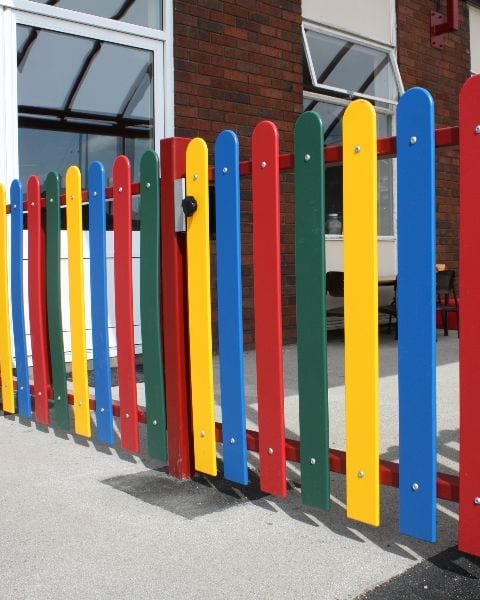

















If you see something your school could use, please send an email to [email protected] and let us know why you’d like it.
